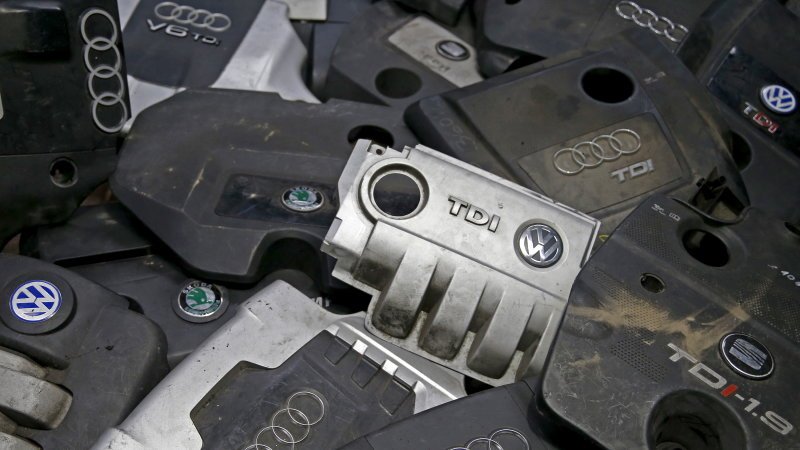VW offers to buy back new diesels if bans introduced

Volkswagen will buy back new diesel cars if German cities ban them, it said on Thursday, seeking to reassure potential buyers and stem a plunge in sales of diesel vehicles.
Europe's biggest automaker also said it would extend incentives for buyers of new diesel cars.
The moves come after a German court ruled last month that cities in the country could ban the most polluting diesel vehicles from their streets.
Many German cities exceed European Union limits on atmospheric nitrogen oxide, known to cause respiratory diseases.
Fears of bans have led to a plunge in demand for diesel vehicles, which are also key to carmakers' attempts to meet new EU rules on carbon dioxide (CO2) emissions. While diesel cars are heavily criticized for emitting nitrogen oxide, they spew out less CO2 than gasoline equivalents.
Diesel car sales plunged 19 percent in Germany last month.
At its core VW brand, Volkswagen said its buyback offer applied to new diesels bought between April 1 and the end of 2018 and would kick in if the city in which the buyer lived or worked banned diesels within three years of the purchase.
It said its dealerships would buy back diesel vehicles affected by bans at their current value if their owners at the same time bought a new vehicle that was not affected by cities' driving restrictions.
At Czech brand Skoda, the guarantee applies to cars bought between April 1 and the end of June, but will cover bans introduced within four years of the purchase date.
At premium brand Audi, the offer only covers leased vehicles.
Volkswagen also said it was extending to the end of June incentives for customers trading in older diesels for new ones.
Fellow German carmaker BMW said earlier this month it would offer to take back leased vehicles if diesels were banned within 100 kilometers (62 miles) of the operator's home or place of work.
There has been a global backlash against diesel-engine cars since Volkswagen admitted in 2015 to cheating U.S. exhaust tests.
But Germany's government is seeking to avoid widespread bans on heavily polluting diesel vehicles, which companies say could cut the resale value of up to 15 million vehicles in Europe's biggest car market.
In Germany, where motorists expect to drive powerful cars on motorways with no speed limits, any restrictions will be unpopular. Yet air quality is also a big concern, with green and consumer groups pushing for action.
Related News
